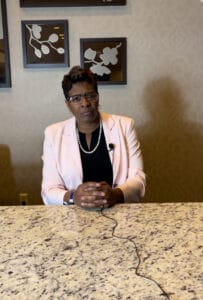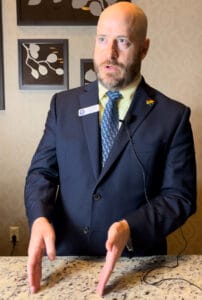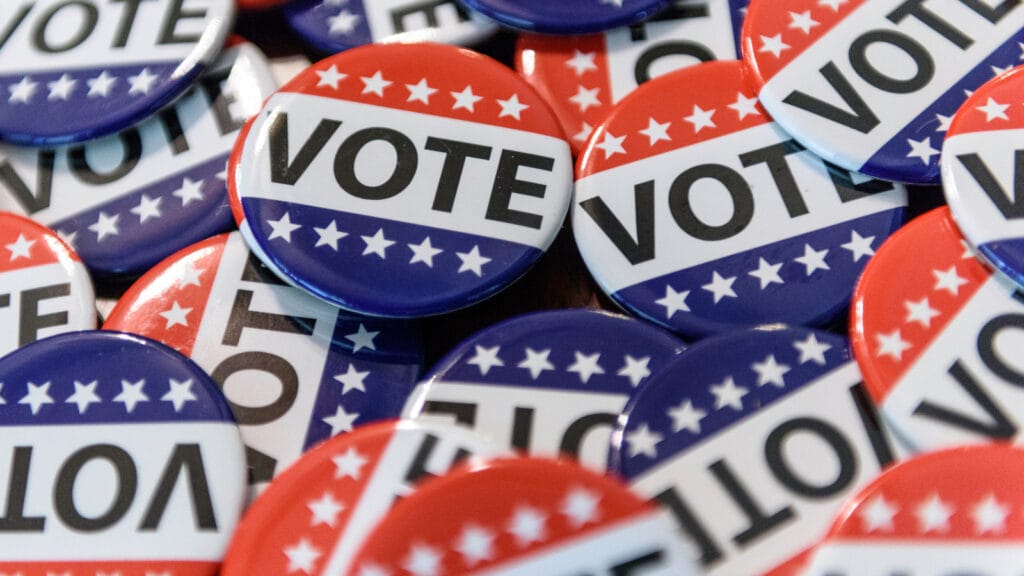When I entered the 2023 LGBTQ+ International Leaders Conference – held annually by the Victory Institute – with Ross Murray, Vice President of the GLAAD Media Institute, and Brian Martin, Consultant to the GLAAD Media Institute, to interview and consult with over 135 elected leaders throughout the country – including 80 elected officials who joined a messaging workshop titled Soundbites and Beyond: Effective Messaging on Anti-LGBTQ+ Bill, I expected elected officials to focus on how over 500 anti-LGBTQ bills has informed their position to fight for LGBTQ equality.
For instance, Atlanta City Councilwoman Keisha Sean Waites says homelessness and housing are top priority for the city.

“I started the conversation by saying that I am an out Black, woman. I don’t identify with being LGBTQ first, I first identify as a Black woman. I am very familiar with the idea of isolation, I am very familiar with the idea of alienation, I am very familiar with the idea of ‘can you scribe, take notes, and go grab our coffee,’ so I’m used to being in those spaces,’” said Waites.
Waites told me these familiarities inform her lens in understanding the discrimination faced by those most affected by homelessness in Atlanta: those living in poverty and those migrating to the US.
Both poverty and homelessness disproportionately affect lesbian, gay, bisexual, and queer youth (28%) and transgender and nonbinary youth (38%) too.
“I think I’m a better advocate when it comes to affordable housing because I grew up in a single parent home, and I know what it is like to watch my mom work two jobs. I think I’m a better advocate on issues of transportation because I saw my grandma, who was a maid, get on the bus every single day, and I saw how those long hikes impacted her directly, and how it impacted my family in terms of the time that she was away from us,” Waites said.
Earlier this year, Atlanta Mayor Andre Dickens announced the launch of a $500,000 forgivable loan program as part of the City of Atlanta’s Faith-Based Development Initiative (FBDI). This funding opportunity will support affordable housing creation on sites owned by faith institutions, according to a November press release.
While LGBTQ politicians are fighting against these bills, they have an all encompassing battle on their hands that is inclusive of the LGBTQ community, as well as working class communities, Black, Latinx, immigrant, (dis)abled, and Indigenous communities: Housing.
#glaadinstitute VP @InLayTerms presenting “Soundbites and Beyond: Effective Messaging on Anti-LGBTQ+ Bills” at the @VictoryInstitute #lgbtqleaders23 this weekend: pic.twitter.com/ycxJtJdGQr
— GLAAD (@glaad) December 4, 2023
On the other side of the country, Alaska State Rep. Andrew Gray has a similar focus: foster care and housing.
“As a former foster parent who was adopted from the foster system, [there is an] overwhelming need to get the word out that we need more foster families, and the state of Alaska needs to be advertising for more foster families,” said Gray.
However, when I asked how foster families connected to other issues – like LGBTQ homelessness and housing inaccessibility – he said “in order for the foster system to work we need our society to work.”
“We need our roads to be plowed, we need affordable housing so that people can afford rent for an apartment that’s big enough for their family,” Gray continued. “It’s about retaining our work force and keeping our skilled workforce to work in this system.”
Gray told me that the most disenfranchised groups in his district are Alaska Native children. Yet, this is a trend that bombards most Indigenous communities throughout the country. Gray told me that children have to fly across the state to access their foster families. This often makes children inaccessible to their biological families who can’t afford the airfare to visit their children. The point of foster families, Gray highlights, is to bring biological families and their children back together.
Throughout the last 10 years, American Native children represented 1.9% of the foster care population, yet only encompassed 1.3% of the general child population, according to the Upstander Project.
Back on the East Coast in Florida, Mary Alford, the County Commissioner in Alachua County, and their constituent, Casey Willits, the District 3 Commissioner in Gainesville, are fighting for affordable, denser housing in an ever-changing climate.

“The price of housing has been unattainable for way too many people, and it doesn’t really matter whether it’s students, young working families, or people later in their life. Particularly in my district, we’re a multifamily district. People live in multifamily housing,” Willits said. “That pressure has led to too many in our community wanting to push away people at different income levels or different housing types or different housing needs. And we are losing track [of the fact] that we have got to build more housing to make sure that we house the people who consider Gainesville to be their home, their refuge, their place where they go to school, where they work, where they get their medical care or where they raise their family.”
Alford has a similar drive in Gainesville. She told me, like Waites, that climate change, transportation, health, and housing are interconnected, and must be discussed as such. Given Florida’s anti-LGBTQ landscape, Gainesville has implemented protections for LGBTQ communities. For Alford and Willits, this was a given.
“My main concerns right now are roads,” said Alford. “Number two is your health. I believe all people should have the right to health care, and all people should live in a community that cares about their health, and to me that means a walkable community, it means access to health and fresh food for everyone.
“And finally, I’m concerned about resilience. As we start confronting climate change here in Florida, we are not on the coast, we are in the middle of the state, and people are going to be coming to our city,” said Alford. “We need to be ready for them.”
LGBTQ elected officials are thinking critically about the future. What shocked me the most is that most LGBTQ officials, despite the battle for LGBTQ equality worldwide, will fight for all communities even when anti-LGBTQ elected leaders and activists attempt to turn their back on ours.













